Are you ready to dive into the vibrant world of festival planning? Organizing a successful event requires not just creativity, but also a well-crafted proposal that captivates potential sponsors and participants. In this article, we'll explore essential components of a festival proposal, including how to articulate your vision and showcase the benefits for all involved. So, grab a seat and let's get started on crafting an irresistible proposal that will have everyone eager to join your celebration!
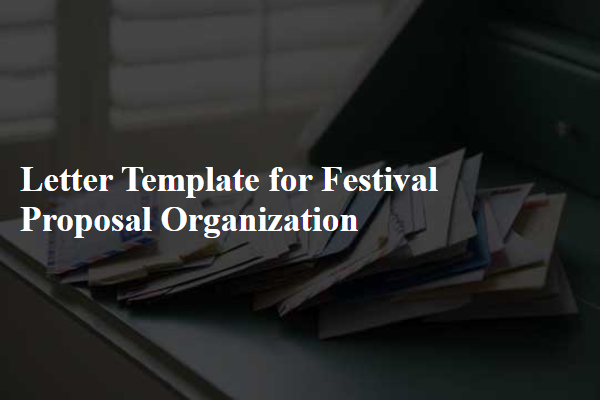
Clear Objectives
The annual Harvest Festival, held at the scenic Riverside Park in Springfield, aims to celebrate community spirit and local agricultural prosperity. Objectives include enhancing community engagement through interactive workshops, such as pumpkin carving and sustainable farming practices, to educate participants about nutrition and environmental stewardship. The festival will also promote local businesses by providing a marketplace for vendors selling organic produce and handmade crafts, stimulating the local economy. In addition, family-friendly entertainment, including live music performances featuring local artists and children's activities, will create a vibrant atmosphere, fostering social connections among residents. Ultimately, the festival targets an attendance of over 5,000 visitors, contributing to a sense of belonging and communal pride within the Springfield area.
Target Audience Identification
Identifying the target audience for a festival proposal organization involves understanding the demographic segments most likely to engage with the event. Festivals, such as music festivals in Coachella Valley, California, attract diverse groups including young adults aged 18-30 who are drawn to live performances and social experiences. Families, particularly those with children, represent another key demographic, as they seek family-friendly activities and entertainment options. Additionally, local residents from surrounding communities often participate, fostering a sense of community and cultural celebration. The interests of these audiences can vary, with health-conscious individuals attending food festivals focused on organic and sustainable options, while others may prioritize art, cultural experiences, or nightlife. Understanding preferences, such as preferred music genres at a festival or the desire for interactive activities, can significantly aid in tailoring marketing efforts, sponsorship opportunities, and programming choices to maximize engagement and attendance.
Budget Breakdown
A well-structured budget breakdown is crucial for effectively organizing a festival, ensuring transparency and resource allocation. Festival expenses typically encompass several key categories, including venue rental costs, which can range from $10,000 to $50,000 depending on location and size in urban centers like New York City. Additionally, artist fees for performers, spanning genres such as rock, jazz, and electronic, can average between $5,000 to $100,000 per act, highlighting the importance of talent selection. Marketing and promotional expenses, estimated at around 10% of the total budget, cover social media campaigns, printed materials, and advertising, critical in attracting attendees. Operational costs, including staff labor, insurance, and security, could constitute another significant portion, often around 20% of the overall budget. Lastly, logistics such as sound equipment rental, stage setup, and utilities must be meticulously planned to prevent overspending, emphasizing the necessity of a detailed and transparent budget for successful festival execution.
Venue Details
The proposal outlines the selected venue for the upcoming music festival, held at Central Park in New York City, a historic urban green space spanning approximately 843 acres. This iconic location attracts over 40 million visitors annually, providing ample room for a capacity of 50,000 attendees. Facilities include multiple stages, accessible restrooms, and various food and beverage vendors. The central location, easily accessible via public transportation including the subway and bus systems, ensures maximum convenience. Additionally, the park's scenic natural backdrop, featuring pathways, lakes, and iconic landmarks, creates an immersive atmosphere for festival-goers. Security arrangements in collaboration with the New York City Police Department ensure safety throughout the event. Advanced acoustic technology will enhance sound quality across the venue, optimizing the audience experience.
Team and Roles
A well-structured team is essential for the successful organization of a festival, such as the annual Summer Music Festival, held in Central Park NYC. The project manager oversees logistics, coordinating tasks with a budget of $200,000. The marketing team, consisting of five members, promotes the event across social media platforms, aiming to increase attendance from 10,000 to 15,000 people. The sponsorship coordinator secures partnerships with local businesses for financial support, targeting a minimum of 15 sponsors. Volunteers, numbering around 50, assist with event setup, crowd management, and activities during the festival, scheduled for July 20-22, 2024. The security team ensures the safety of attendees, while the technical crew manages sound and lighting, crucial for live performances from renowned artists. Each role is critical in ensuring a smooth and memorable experience for all participants.
Letter Template For Festival Proposal Organization Samples
Letter template of festival proposal for environmental sustainability initiatives.
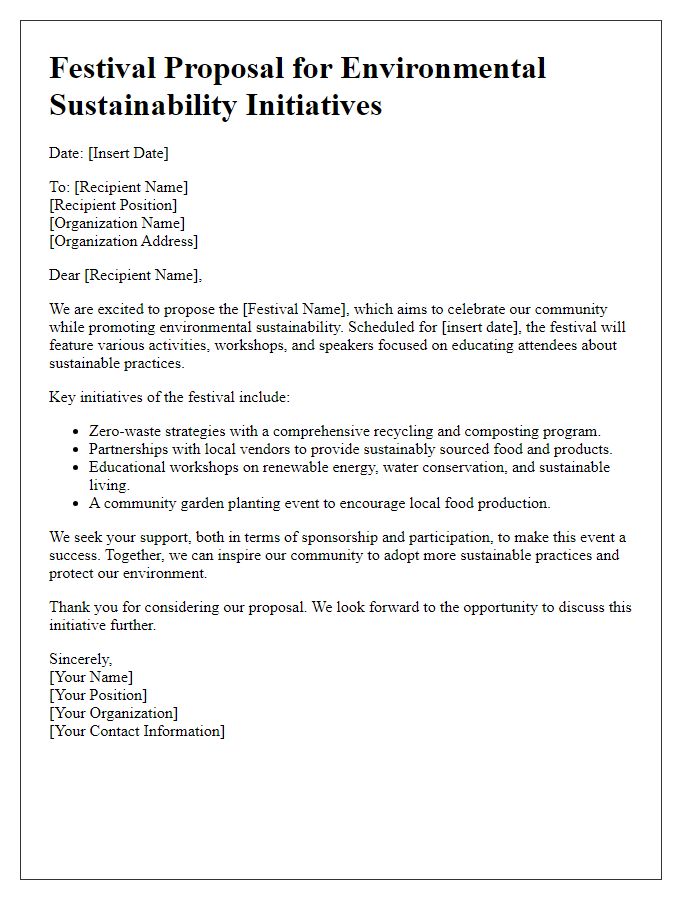

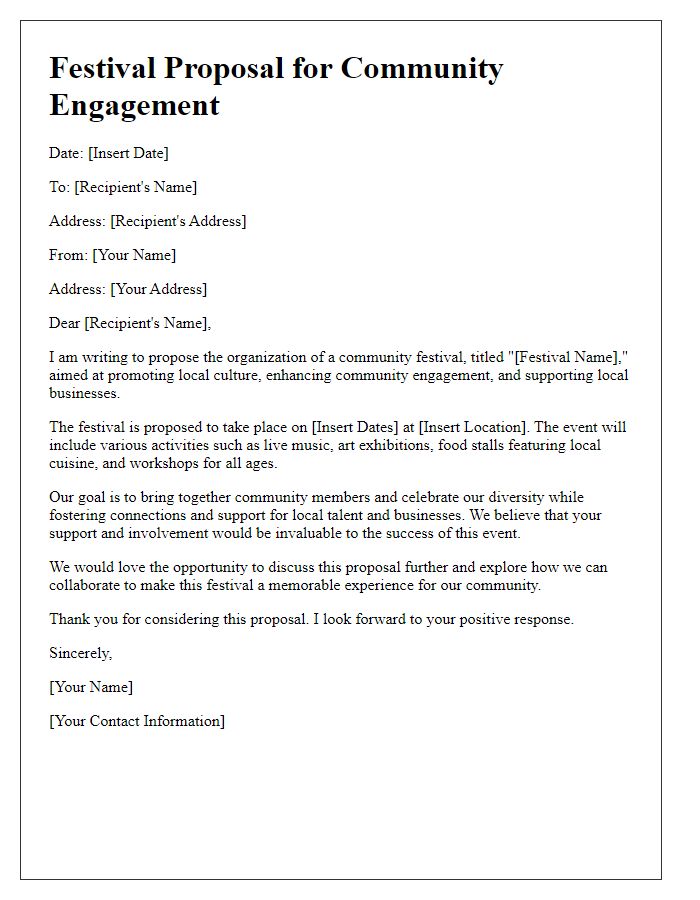
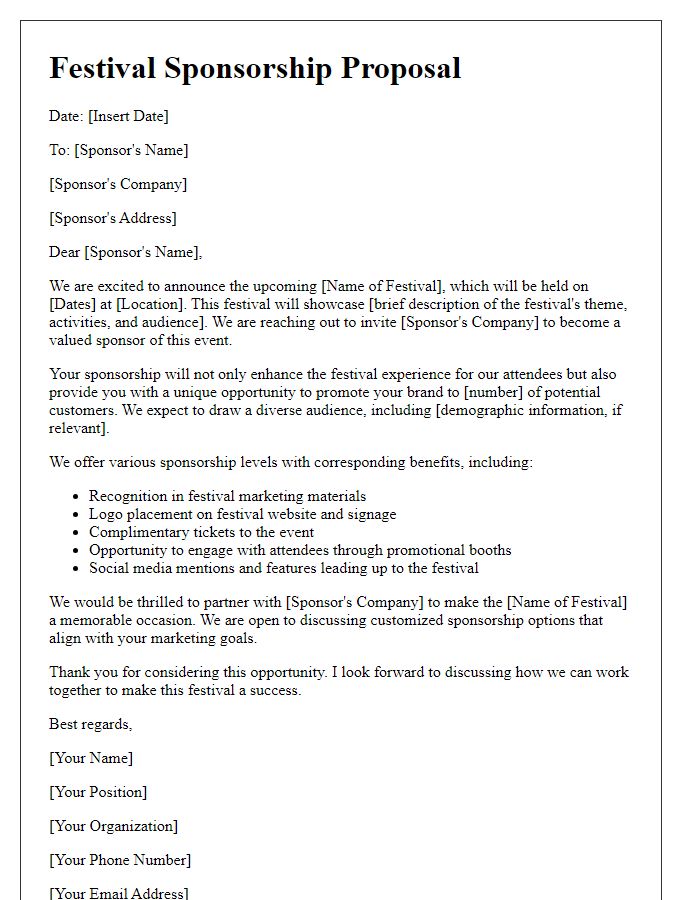
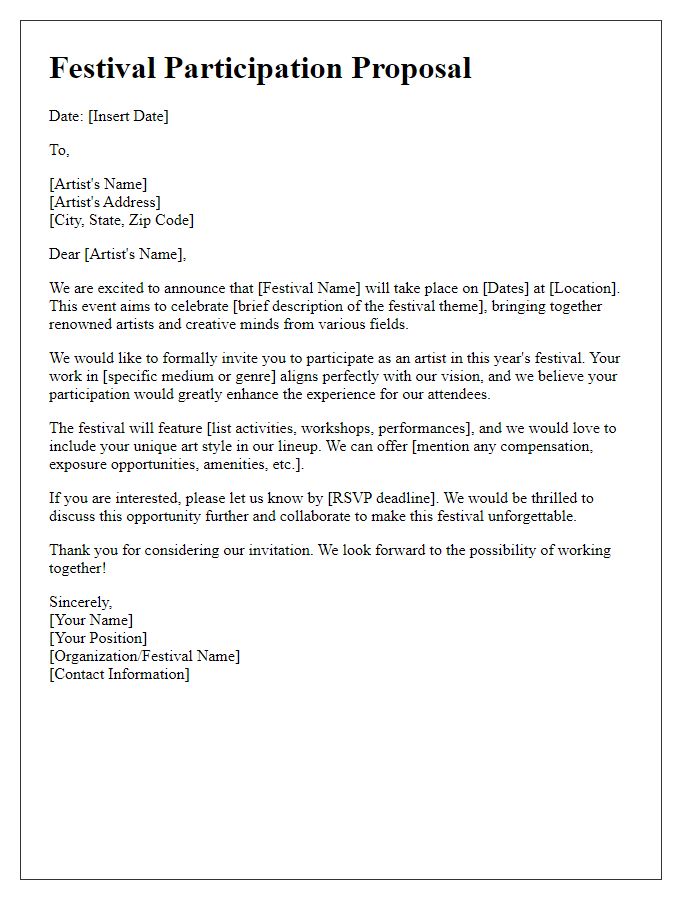
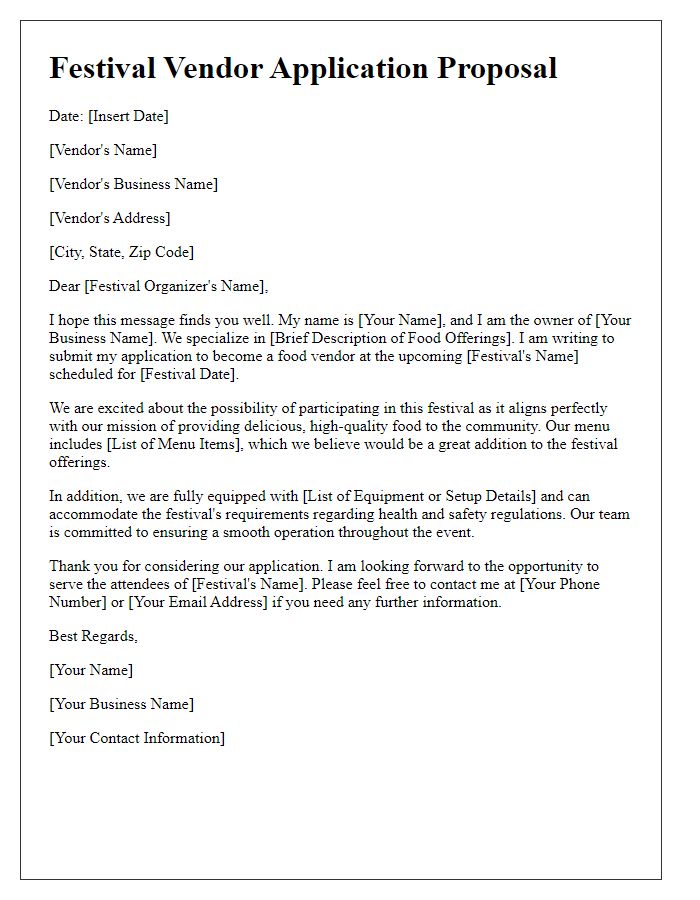
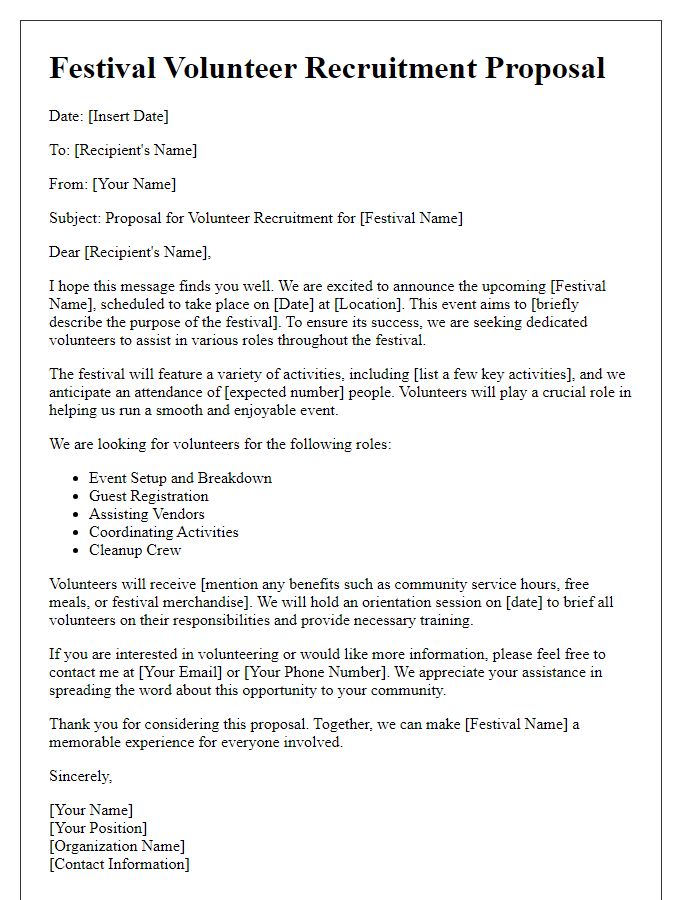
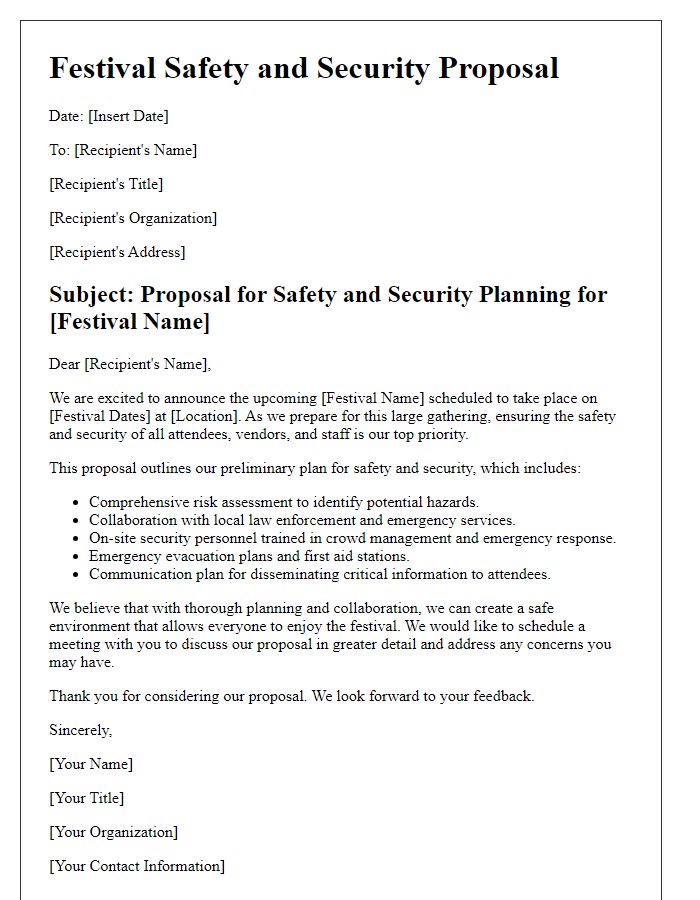
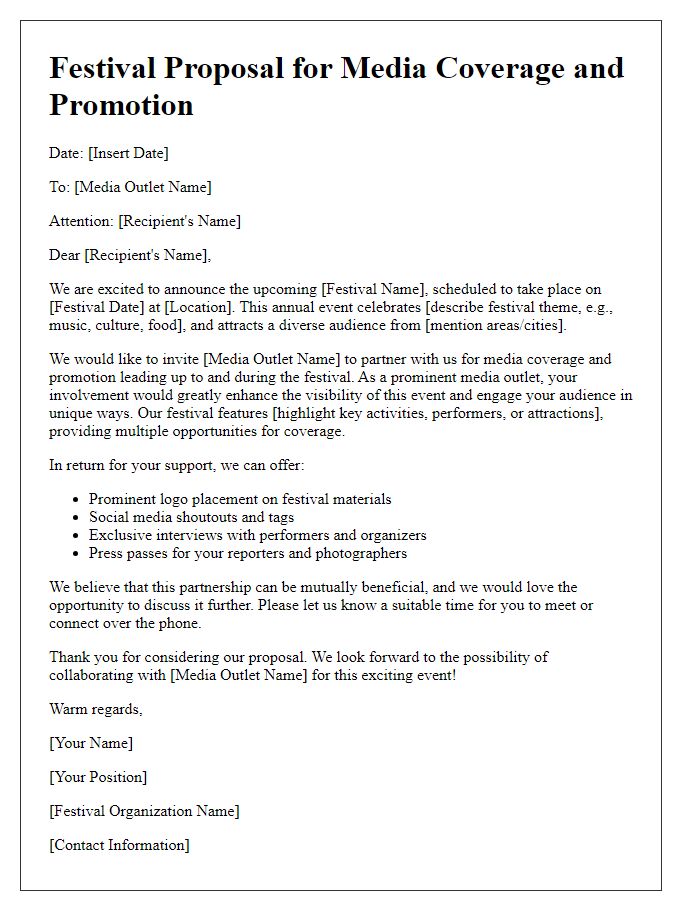
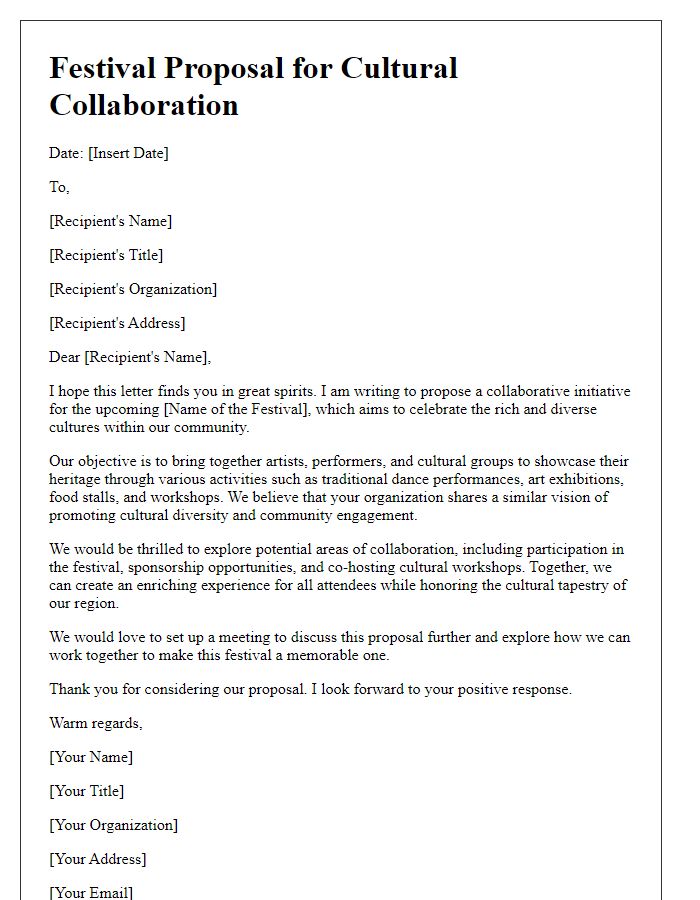
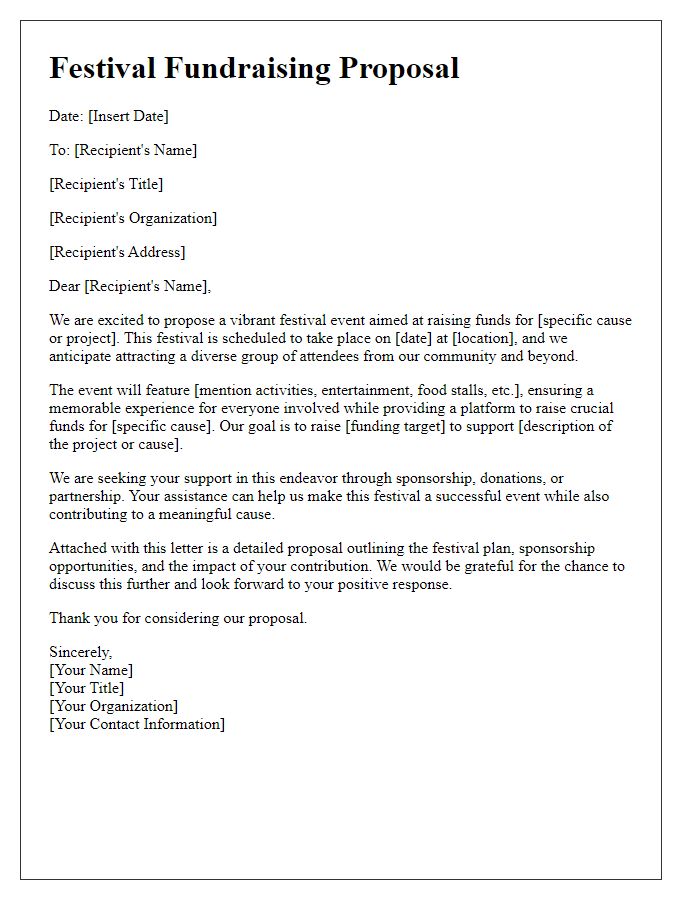


Comments